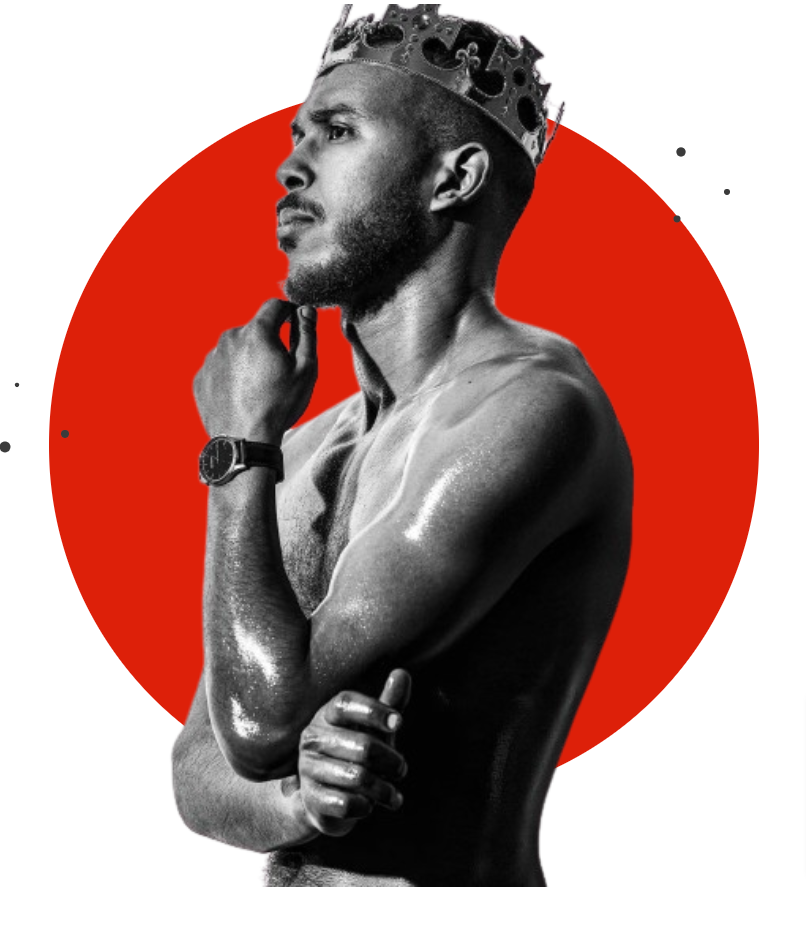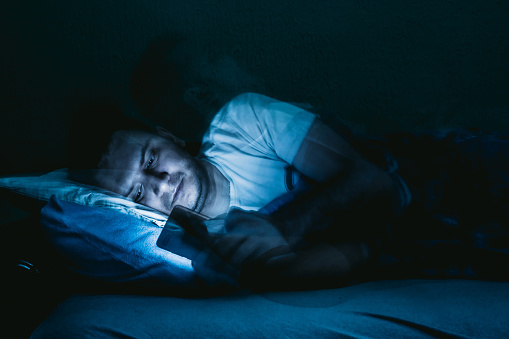Unlocking the Connection: NoFap and Social Anxiety
Social anxiety affects a lot of people, making it tough to navigate both personal and professional connections. Especially when people get caught up a lot in watching pornography and making masturbation a habit, it can make socializing a real challenge.
Doing these things a lot might bring some not-so-great outcomes, making it tricky to feel confident in social situations. Being hooked on these habits could make someone feel pretty bad about themselves, making it harder to connect with others for real. Plus, all the time spent on these habits could get in the way of building strong relationships, leaving folks feeling kind of alone and out of the loop.
But, stepping away from these habits isn't just good for feeling better personally; it might also open the door to a more enjoyable social life. One emerging solution revolves around the potential role of NoFap, the practice of abstaining from pornography and masturbation, in alleviating social anxiety.
Understanding NoFap and its Basics
NoFap is a term that has gained significant traction in recent years, particularly in online communities. It is essentially about making a choice, a choice to steer clear of pornography and masturbation addiction. It's like hitting pause on these certain habits that might be getting in the way of your well-being, especially in the social department.
The term itself is derived from a colloquial expression for masturbation and has become synonymous with a movement that advocates for sexual self-control. The NoFap movement originated on the internet and quickly grew into a widespread community. It began as a thread in a web forum where users challenged each other to refrain from masturbation for a set period.
This challenge quickly evolved into a broader discussion about the benefits of abstaining from sexual self-gratification. Today, NoFap has expanded beyond its original online boundaries and has been embraced by a diverse group of individuals worldwide.
How Does It Differ From Regular Abstinence?
To understand how NoFap differs from regular abstinence, it's essential first to define what each term means. Regular abstinence generally refers to the deliberate avoidance of masturbation. Regular abstinence is often practiced for various reasons, including religious or spiritual beliefs, personal choice, health reasons, or as part of a relationship agreement.
NoFap, while it overlaps with the concept of abstinence in some ways, has its unique characteristics and motivations. The primary focus of NoFap is specifically on abstaining from masturbation and often pornography.
Unlike traditional abstinence, which might be motivated by a broad range of factors, NoFap is typically pursued with the goal of self-improvement, mental clarity, and breaking what participants perceive as a dependency or addiction to sexual self-gratification and pornography.
Does NoFap Help With Social Anxiety?
The question of whether NoFap helps with social anxiety is a topic of considerable interest and debate. Many individuals who participate in NoFap report experiencing a reduction in their social anxiety.
These personal accounts often describe increased confidence, improved self-esteem, and a greater sense of ease in social situations. Participants sometimes attribute these changes to a feeling of greater self-control and discipline achieved through their NoFap journey.
However, it's crucial to note that these are subjective experiences and may not apply universally to everyone who tries NoFap. Research indicates that excessive consumption of pornography can have various psychological effects, some of which may relate to social anxiety.
For individuals who perceive their pornography use as problematic, reducing consumption might contribute to improved mental health outcomes.
From a scientific standpoint, the direct relationship between NoFap and social anxiety is not well-established. There is limited research specifically examining the effects of abstaining from masturbation on social anxiety.
The Neuroscience Behind NoFap
The practice of NoFap, which involves abstaining from masturbation and often avoiding pornography, has sparked interest not just in psychological circles but also in the field of neuroscience. This is why, it's essential to first look at how our brain reacts to sexual stimulation and the role of certain neurotransmitters in this process.
The idea behind NoFap is that by abstaining from activities that frequently stimulate this reward circuit, particularly masturbation and pornography, individuals might be able to 'reset' their brain's response to these stimuli.
This reset could potentially lead to changes in how the brain reacts to sexual stimulation and pleasure, possibly reducing the urge to engage in these activities compulsively.
How Does Pornography Consumption Affect The Brain?
One of the key players in the neuroscience of NoFap is dopamine, a neurotransmitter often referred to as the 'pleasure chemical' of the brain. Dopamine is released during pleasurable activities, including sexual activity. It's responsible for the feeling of pleasure and reward, motivating us to seek out these enjoyable activities.
When engaging in activities that release dopamine, like sexual activity or watching pornography, the brain's reward circuit is activated. This circuit is a group of brain structures that manage feelings of pleasure and reward.
Repeated activation of this circuit through frequent masturbation or pornography consumption can lead to the formation of habits or patterns of behavior. In some cases, this could potentially lead to what some might perceive as addictive behaviors.
Can NoFap Lead to Increase in Confidence and Reduced Social Anxiety?
Many individuals who engage in NoFap report experiencing a boost in confidence and a decrease in social anxiety. These personal accounts often describe feelings of increased self-esteem, greater assertiveness, and a more positive self-image.
Participants attribute these changes to the discipline and self-control they develop through abstaining from masturbation and pornography. However, it's important to remember that these are subjective experiences and may not be universally applicable.
Successfully adhering to a challenging commitment like NoFap can provide a sense of accomplishment, which in turn can boost self-esteem and confidence. It is like the belief that NoFap will lead to increased confidence and reduced social anxiety might itself contribute to these outcomes, a phenomenon known as the placebo effect.
NoFap and Lifestyle Changes
NoFap, the practice of abstaining from masturbation and often pornography, is not just an isolated activity; it often leads to broader lifestyle changes. Many who embark on the NoFap journey find that it becomes a catalyst for transforming various aspects of their daily lives.
One of the most significant changes that NoFap encourages is the development of self-discipline. Sticking to the commitment of NoFap requires a considerable amount of willpower.
This newfound discipline often spills over into other areas of life, such as fitness routines, dietary habits, and time management. As individuals learn to control their impulses in one area, they often find it easier to manage other aspects of their life.
Common Misconceptions about NoFap's Impact on Social Anxiety
One of the most prevalent misconceptions is that NoFap is a surefire solution to social anxiety. While some individuals report a decrease in social anxiety symptoms during their NoFap journey, it's important to understand that social anxiety is a complex issue.
It often requires a multifaceted approach to manage effectively, including therapy, lifestyle changes, and sometimes medication. NoFap is not a one-size-fits-all remedy and may not have the same effect for everyone.
Immediate Results are Expected
A common belief is that the benefits of NoFap, particularly in relation to social anxiety, will be immediate. In reality, changes in mental health and social behavior often take time. The journey is different for each individual, and improvements in social anxiety may be gradual rather than instantaneous.
NoFap's Benefits are Purely Psychological
Some believe that the benefits of NoFap for social anxiety are purely psychological or placebo. While the placebo effect can play a role in any self-improvement effort, it's important not to discount the potential physiological and neurological changes that can occur. Changes in dopamine regulation and other neurochemical adjustments can have real, albeit not fully understood, impacts on mood and anxiety levels.
NoFap is Universally Beneficial for Social Anxiety
Finally, there's a misconception that NoFap is beneficial for everyone with social anxiety. Just as with any other treatment or lifestyle change, individual responses to NoFap vary greatly. What works for one person may not work for another, and it's important to respect and acknowledge these differences.
Combining NoFap with Lifestyle Adjustments
Embarking on the NoFap journey often leads individuals to explore other areas of their life that can be improved. Combining NoFap with various lifestyle adjustments can create a synergistic effect, enhancing overall well-being and personal growth.
Let’s delve into how integrating NoFap with other lifestyle changes can be beneficial. It’s important to remember that change takes time and consistency, and the journey is as important as the destination.
Boosting Physical Health
Regular physical activity is a cornerstone of a healthy lifestyle. For those practicing NoFap, engaging in exercise can amplify the benefits. Exercise releases endorphins, known as 'feel-good' hormones, which can improve mood and reduce feelings of anxiety and depression.
The discipline required to maintain a regular exercise routine can reinforce the self-control practiced in NoFap. This mutual reinforcement can make it easier to stick to both commitments.
Nutritional Balance
Just as the body needs exercise, it also needs proper nutrition. A balanced diet can improve physical health, which in turn can positively affect mental health. Nutrient-rich foods support brain function and can help regulate mood.
Eating healthily can be seen as another form of self-care and discipline, aligning well with the principles of NoFap. It’s about making conscious choices for your body’s benefit.
Mindfulness and Meditation
Practices like mindfulness and meditation can be particularly beneficial for those on the NoFap journey. They help in managing stress and reducing anxiety, which are often triggers for the behaviors NoFap aims to control.
These practices also enhance concentration and mental clarity, aiding individuals in maintaining their commitment to NoFap and making thoughtful life choices.
Conclusion: NoFap Helps With Social Anxiety
It's evident that NoFap can play a role in managing social anxiety, particularly when integrated into a holistic approach to personal well-being. While NoFap is not a standalone cure for social anxiety, it can be a significant component of a broader strategy aimed at improving mental health and social functioning.
NoFap's emphasis on self-control and discipline can indirectly contribute to an individual's sense of self-confidence. For many, successfully adhering to the NoFap challenge instills a feeling of accomplishment and control, which can positively impact social interactions and reduce feelings of anxiety in social settings.
By abstaining from habits that may contribute to social anxiety, such as excessive pornography consumption, individuals practicing NoFap might find themselves confronting and addressing the underlying issues related to their anxiety. This introspection and self-awareness can be crucial steps in managing social anxiety more effectively.
NoFap can be a valuable component of a comprehensive approach to managing social anxiety. Its emphasis on self-discipline, coupled with lifestyle changes and community support, can contribute to improved mental health and social well-being.
However, it should be approached as part of a broader, personalized strategy for mental health, considering the unique needs and experiences of each individual.
Featured Image Credits to Embed from Getty Images


0 comments